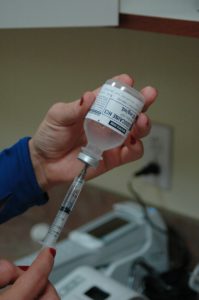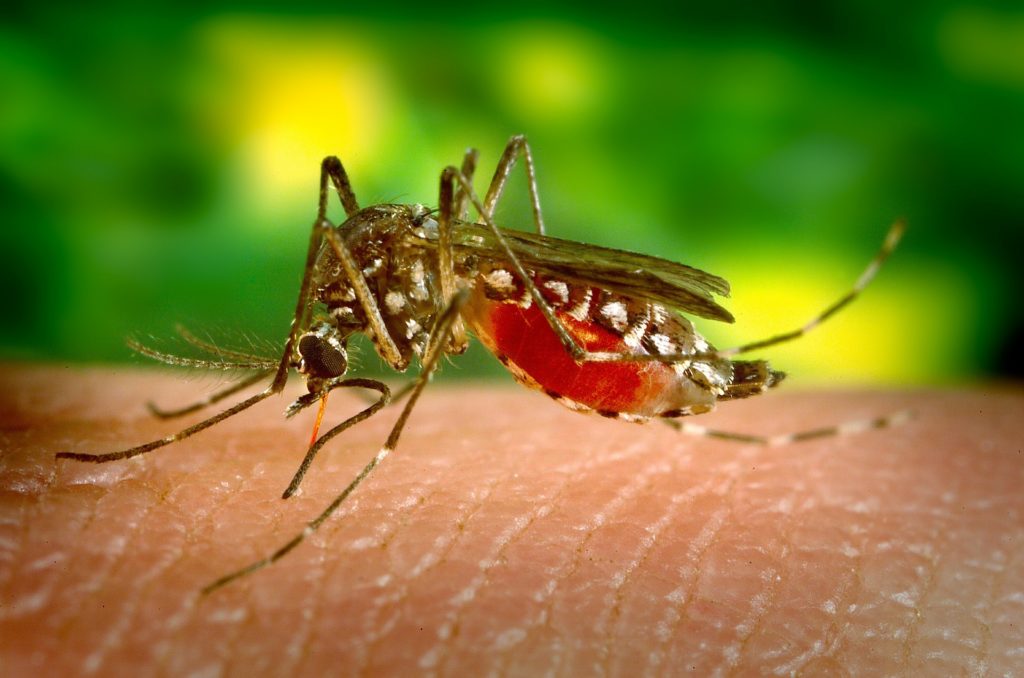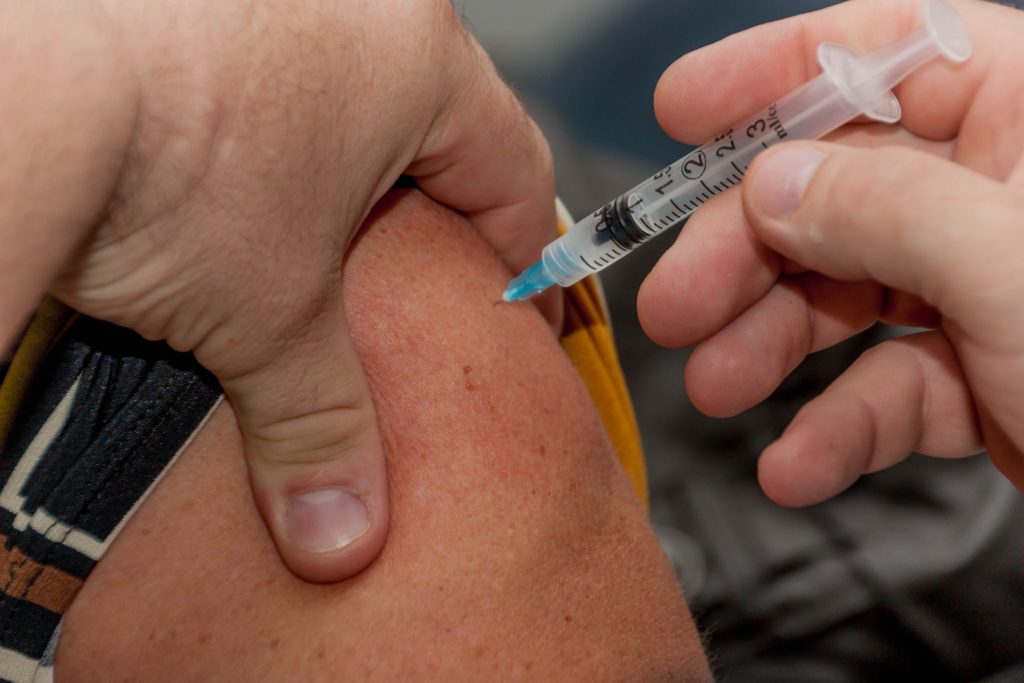Summer vacation is just around the corner and many families are in the final stages of getting ready for that much-needed break. Of the many things that families prepare for the vacation, health products like travel medication and first aid kids are among the most essential. But what if an untoward instance happens, say a family member contracts an infectious disease in the country you’re visiting? What should families do? We talk to Dr. Eisel Go Palestroque, a pediatrician at Vista Medical Clinic in Beijing, who advises families to get travel vaccination as an added dose of travel preparedness.
 How important is it for expats in China who are planning to travel abroad for the summer break to get vaccinations?
How important is it for expats in China who are planning to travel abroad for the summer break to get vaccinations?
Dr. Palestroque: Vaccination is one of the most important and effective measures to prevent serious illnesses in children and adults. Vaccines stimulate the immune system to produce antibodies that protect the body against illnesses and infection. Vaccination remarkably reduces the chances of a child, a family, or the entire community contracting serious illnesses by decreasing the number of people who can get sick and who can spread pathogens. Different infections are found in different countries. People can contract them when traveling to other parts of the world. And, getting vaccinated helps keep one from being sick.
What infectious diseases and other illnesses might international travelers, especially children, get?
All people traveling abroad are at risk of measles infection. It occurs worldwide and is the fifth most common cause of death in children under 5 years of age. Measles is a highly contagious viral illness spread by person-to-person contact and airborne transmission as well. It causes fever, red eyes, cough, and red rashes that start on the face and spread to the body. Its life threatening complications include pneumonia, brain infection and severe dehydration.
Yellow fever is found in Africa and areas of South America. It is a viral infection caused by a bite of an infected mosquito. Common symptoms include fever, headache, vomiting, yellowish skin, liver and kidney problems, and hemorrhage. Yellow fever has a high fatality rate.
Malaria is another mosquito-related serious illness affecting returning travelers and a higher risk is seen among those who traveled to sub-Saharan Africa. It is caused by a bite of an infected mosquito. Symptoms are fever, chills, sweating, headache and severe malaria can cause mental changes, seizures, bloody urine, and can also be fatal. Most travelers develop malaria because of failure to adhere to an effective preventive drug regimen. Also, many do not use personal protection for mosquito bite prevention.
Dengue fever incidence is highest in parts of Asia and South America. It is an acute viral illness caused by an infected mosquito bite. Fever, headache, vomiting, belly pain, rash and bleeding manifestations such as nosebleeds and having black stools are the symptoms of dengue/dengue hemorrhagic fever. Each year, it is estimated that over 390 million dengue cases occur and approximately 96 million are clinically apparent.
Japanese encephalitis is a leading cause of brain infection caused by a virus in Asia and parts of the western Pacific. One can get it after being bitten by an infected mosquito. It can cause long-term problems with the nervous system and is sometimes fatal.

A high incidence of typhoid fever is seen in South and Central Asia, Southeast Asia, and Southern Africa. It causes fever, chills and belly pain. People can get it from drinking unclean water or contaminated food.
Hepatitis A is found worldwide. It is a viral infection and acquired from eating or drinking contaminated food or water. It presents with fever, abdominal pain, diarrhea and yellowish skin. It can cause severe liver problems.
Travelers’ diarrhea is runny or watery stools in traveling individuals. Bacteria, viruses, or parasites are the main causes. If one travels in Asia, Africa, South and Central America, and the Caribbean, one is more likely to get travelers’ diarrhea. Aside from watery diarrhea, other symptoms include abdominal cramps, feeling like the belly is full, vomiting, fever, and blood in the stool. This can be prevented by being careful about what and how you eat and drink.
Cholera is an epidemic throughout Africa, Asia, Middle East, South and Central America. The WHO estimates 3 million cholera cases and approximately 100,000 deaths worldwide every year. Cholera is acquired by eating or drinking contaminated food or water. Cholera causes abdominal discomfort, vomiting and severe diarrhea that rapidly leads to profound fluid and electrolyte losses often within 24 hours from the onset of vomiting and diarrhea.
Meningococcal meningitis is a bacterial infection of the blood or tissues around the brain and spinal cord with high mortality, transmitted by respiratory secretions. It is the leading cause of bacterial brain infection in children and young adults in the United States. Symptoms are high-grade fever, vomiting, and myalgia. Epidemics are frequent in areas of Africa.

Who can get vaccinations? Should young children be vaccinated before international travel? Or how about people with certain conditions like heart disease?
People need different vaccines at different stages of life. Infants and children usually need vaccines against infections that can strike at any time in life. They should be given vaccines before traveling abroad especially against infections that exist in the area to which they are traveling. Certain vaccines are recommended for children up to age 6. Meanwhile, people who have ongoing health problems, such as heart or lung disease or diabetes should consult their healthcare provider and/or specialized travel medicine clinic for vaccines they should receive prior to traveling.
How can temperatures and weather affect microbes or vectors in transmitting diseases?
Several types of research have confirmed the correlation between weather conditions and growth and survival of microbes and other vectors that spread diseases. Some illnesses are more likely to happen during the summer than any other time. Warmer indoor and outdoor temperatures encourage the rapid growth of bacteria in any food left out of the fridge, thereby increasing the chance of contracting food poisoning or other food-borne illnesses. Potential effects of global climate change are a major concern, increasing transmission of mosquito-borne diseases.
What’s your advice when Beijing-based expats get sick in another country during travel?
Travel-related health problems happen due to a variety of reasons, including exposure to infectious organisms, the use of certain transportation, and participation in certain activities during travel. Health problems related to traveling can also arise when a preexisting medical condition worsens during travel.
Therefore, individuals or families planning international travel must visit a healthcare provider or a specialized travel medical clinic at least a month prior to traveling so that a physician can recommend vaccinations, provide necessary travel medications, and give advice for staying healthy during the trip. The key is to plan ahead and to make sure you have all the medicines and supplies you might need.
 About the Doctor
About the Doctor
Eisel Go Palestroque, M.D. graduated from Far Eastern University – Dr. Nicanor Reyes Medical Foundation in Manila in 1994, and got a Philippine physician license in 1995. Dr. Palestroque spent over 20 years as a practicing physician in the Philippines before relocating to China. He worked in Shanghai DeltaWest Clinic in Shanghai in 2013. Dr. Palestroque is a board-certified pediatrician and specializes in General Pediatrics, providing wellness health check and sick consultation from newborns to adolescents.
Photos: dfuhlert, jaytaix, skeeze, and huntlh via Pixabay; courtesy of Vista Medical Center
More stories by this author here.
Email: andypenafuerte@beijing-kids.com
Instagram: @coolkidandy
